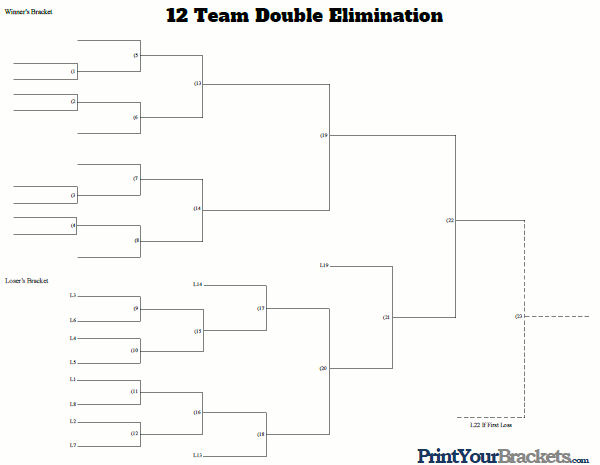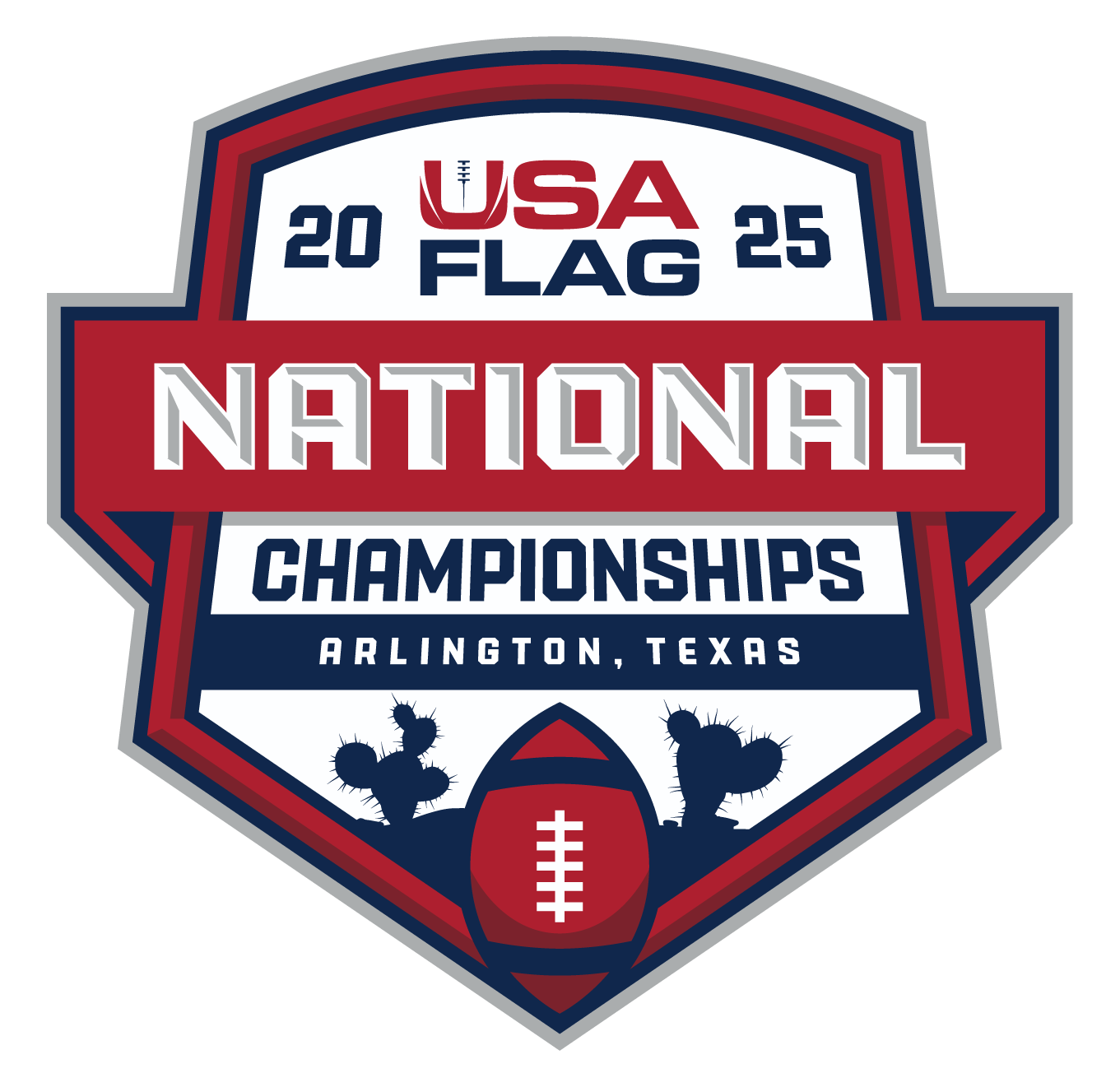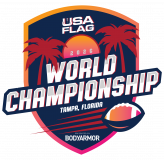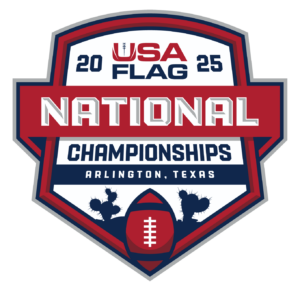Pool play vs Double Elimination for tournament play is one of the most talked about topics in the flag football world today. Many players and teams feel very strongly one way or the other, and each presents their own unique set of benefits and drawbacks worth considering. For us at the FFWCT, we utilize pool play for a variety of reasons that we’ll discuss here and why we believe it is the best format for tournament play.
How Our Pool Play Works
At the FFWCT Battle Orlando National Championships and World Championships in Arlington in May, we give all 4v4 and 5v5 teams 4 pool play games, while 7v7/8v8/9v9 teams will get 3 pool play games, spread out between Friday and Saturday. For playoffs, around half of the the top teams will advance to the playoffs on Sunday where they will play in a single elimination bracket to determine the National Champion.
Pool Play Matters
One of the most common complaints about pool play is that some teams feel that the games don’t matter since everyone makes playoffs, however at our National and World Championships that is not the case, Pool play will be extremely important since it not only a
ffects your seeding for playoffs, but whether or not you advance at all. Teams will no longer be able to coast through pool play. Every game will matter.
By The Numbers

Here’s some hard numbers worth considering before we dive into the general benefits for pool play over double elimination.
50% of teams in double elimination brackets will lose their first game. I know this sounds like a no brainer, but it’s important for the next fact….
Less than 1% of teams who lose their first game in a double elimination tournament go on to win. Out of the thousands of double elimination brackets we studied from flag football tournaments in the last 3 years, less than 5 teams lost their first game and went on t
o win the tournament, having to double dip the winners bracket in the process. The percent was closer to zero than 1 in fact.
That means that 50% of the teams participating in a double elimination bracket have a near 0% chance of winning after their first game.
Compound that with the fact that you may get matched up with a very tough opponent first round (i.e. random matchups based on points that you have no control over) and that’s a scary proposition. Contrast that to our pool play where most teams would have to lose 2+ games to be eliminated from qualifying for playoffs, that is a much larger sample size when avoiding travel jet lag, bad matchups and other issues that can arise.
Only 1 team per division can possibly benefit from having to be beaten twice. Of those, the odds of climbing back through the losers bracket is astronomically low no matter how deep in you lose.
Primary Benefits of Pool Play
Below are the main benefits for pool play and are the driving force behind us utilizing this format over double elimination for our events.
More Guaranteed Games
With our pool play format at the National and World Championships, teams are guaranteed a minimum of 3-4 games depending on the format, making sure you get plenty of of play time to justify the travel. In double elimination, you could go 0-2 barbecue and be done before you even get started, making it tough for slow starting teams or teams with players who miss a game or two. However each winning team’s total games played is roughly the same as in a double elimination tournament.
As an example, in our pool play format for a 24 team division, 12 of the 24 would make the playoffs, where the winning team would play at most 7-8 total games for most formats. In a 24 team double elimination bracket, the winning team would expect to play between 6-7 total games, however a team that loses early could play up to 10 games. And contrary to popular belief, our pool play format offers more total games per division than double elimination, so it’s not about cutting costs, it’s about quality of play.
Guaranteed Scheduling

One of the biggest drawbacks to double elimination is trying to work around scheduling teams who want to play in multiple divisions. Even with someone building the schedules perfectly there’s still no way to guarantee more than a couple games not overlapping between formats in a large tournament, and as soon as you get a little behind the whole schedule is thrown off and out the window, as I’m sure many of you have experienced.
With pool play and our schedule blocks, that’s simply not an issue. We schedule certain divisions in two different blocks, one in the morning, and one in the afternoon/evening. You’ll know as soon as you register which
block your division is in so you can sign up in a second style that we guarantee will never overlap. Since switching to pool play in dozens of tournaments with hundreds of teams represented, we’ve never once had an issue with guaranteed schedules overlapping.
Friendlier Matchups
Pool play allows us to get creative with our seeding process, from which we developed the current draft structure that allows you as a team to have a say in who you play in pool play. With double elimination, where teams are automatically seed
ed based on points that some teams have more access to than others, it can create big problems. You have no control over your matchup, and many times teams will travel from hundreds or thousands of miles away only to play another team first round that they play every week.
We’ve seen it many times, sometimes matching two top teams up in the first round where one of those teams now has a near 0% chance of winning before they even play. With pool play and the draft, you have input to try and make sure that doesn’t happen, and a larger sample size of games to determine your ability in making playoffs.
Games Run on Time or Early
Since January when we switched all National and World Championship tournaments over to pool play, every single game and division has finished on time or early. In the very few instances where we get behind at all, we catch up right away, and it’s all thanks to our scheduling and yes, pool play. Many of you have been to tournaments that are sometimes hours behind, sometimes waiting around in harsh weather, simply because double elimination is very unforgiving on a timely tournament. Games running behind in double elimination also impacts many teams due to it creating schedule overlaps that now can’t be avoided, forcing teams to choose which games to participate in, and increasing the number of forfeits at an event, and severely diminishes the overall event experience.
Still not convinced? That’s no problem, we understand that some teams are simply more used to one format over the other and may prefer it regardless of the advantages or disadvantages, but luckily that’s not the only reason you should attend our tournaments. With over $30,000 being given out in prizes, tons of activities such as captains meeting, draft, after parties and more, there’s plenty of reasons to check it out! Find out more and register here!















No Comments